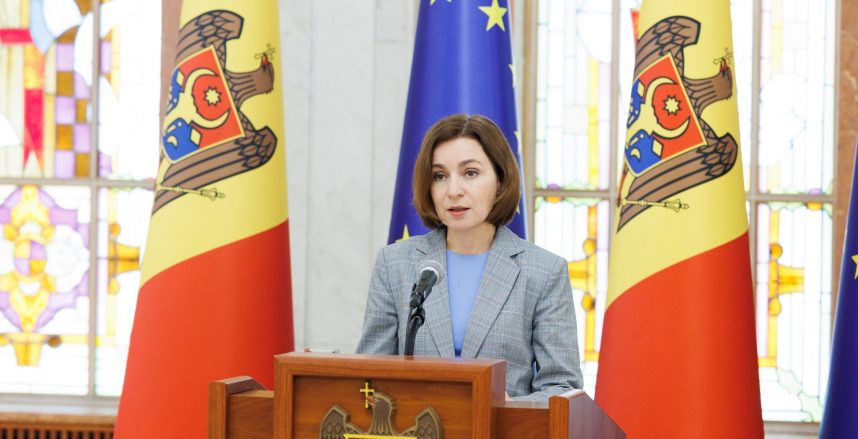
President says new ‘informational defence centre’ will address Kremlin propaganda aimed at sowing divisions in society and ‘weakening trust in our state’.
Moldovan President Maia Sandu on Monday announced the launch of legislative initiatives to create an institution to combat Russian propaganda and better protect citizens from manipulation.
“We must defend Moldova from informational attacks and increase citizens’ resistance to misinformation. The national centre for informational defence and combating propaganda – PATRIOT – will have the mission of coordinating the state’s policy in informational security and combating disinformation at the national level,” Sandu said.
She added that the text of the legislative initiative will be published on Tuesday on the website of the presidency for consultations. The draft bill will be sent to parliament by the end of June.
“Those who launch and spread falsehoods want to cause fear, hatred and division. Day by day, the Kremlin and criminal groups launch hybrid attacks and use the weapon of propaganda to sow hatred in Moldova, to weaken our trust in each other and our trust in our state,” Sandu said.
She claimed that the Kremlin spends huge sums to spread lies in the media and on social networks and “finances criminal groups with dirty money that try to stop us from our way of developing the country”.
Sandu’s announcement comes after the foreign ministers of the European Union last Monday agreed to send a new civilian mission to Moldova to strengthen its security against hybrid threats in the context of Russia’s military invasion of Ukraine.
The EU mission was created on April 24 to improve Moldova’s resistance to hybrid threats, including energy security, so that it can counteract the manipulation of information or foreign interference.
The EU mission will be led by Cosmin Dinescu, Romania’s ambassador to Latvia and Lithuania. The commander will be the director general of the European External Action Service for planning and civil operations, Stefano Tomat, in charge of civil operations.
“Attempts to destabilise Moldova have increased significantly since the beginning of Russia’s war of aggression against Ukraine and represent a direct threat to the stability and security of the EU’s external borders,” stated the EU Foreign Affairs Council.
On the other hand, Moscow has accused the EU of trying to exert more influence oveer Moldova through this new mission.
Moldova is seen as one of the least resilient countries to Russian propaganda, which aims to undermine people’s confidence in their leadership, destabilise the country and divert Moldova from the European path.